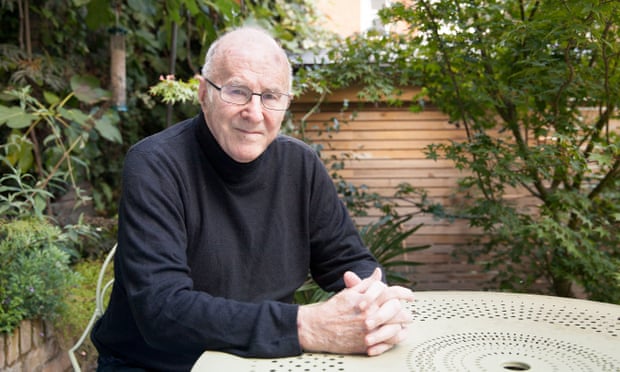Let’s talk about death openly and honestly

We no longer feel comfortable naming death, and we’ve lost the etiquette that told us how to support the dying and bereaved
By
Not for the first time, I find myself playing death-euphemism bingo as TV and radio news bulletins tell us that Clive James has “passed away” after living with leukaemia and Jonathan Miller, who had Alzheimer’s, has “passed on”. Of all the departures from life mentioned in broadcast media over the past few days, it seems the only one with a D-word attached is Gary Lineker’s dog, Snoop. Snoop died.
We are abandoning the language of death. Fear of saying the wrong thing to dying or bereaved people causes friends and family to say nothing, to “talk positive” or to avoid them altogether. Bereaved people frequently talk about others crossing the road to evade them. Mentioning death becomes impolite. Perhaps it’s even becoming rude to die.
But it isn’t only saying the words aloud that has stopped; we avoid considering our own mortality. In the UK, a country with a 100% death rate, only 40% of adults have written a will. Worse, a mere 6% of us have nominated a lasting power of attorney, a person to make medical decisions on our behalf should we become temporarily or permanently unable to do so for ourselves. In other words, we seem to take some action to manage our affairs after death, but we don’t engage in planning for the dying itself. How did this happen? And why does it matter?
As 20th-century medicine transformed our life expectancy, familiarity with death at home was replaced by an expectation that modern medicine would save the lives of those sick enough to die, and return them to health, to work and to family life. The once familiar process of dying became overlooked as hospitals used newly developed drugs, machines and operations to postpone death.
Death itself became a failure to save a life; an unwanted medical outcome; an adverse event. An increasingly secular society drifted from traditional spiritual practices around a deathbed, but found no new rituals to replace them. We no longer feel comfortable naming death, and we have lost the etiquette that told us how to visit the dying and support the bereaved.
But should it be taboo? I have seen that the dying, and the elderly who recognise that their survival is becoming a numbers game, are grateful for an opportunity to discuss their wishes, but people around them are often too uneasy to join the conversation.
Not talking about death won’t prevent dying. I recall an unconscious man in his 90s in a hospital emergency department. With multiple medical problems for years, that day he had collapsed at home and not regained consciousness. “Please do something,” begged his desperate sons.
“What did your dad say he would want to happen, if he was ever sick enough to die?” I asked them. The D-word made them blink. They looked at me like helpless rabbits caught in torchlight. They had never discussed it, they told me.
Then one of them, speaking slowly and looking anxiously at his brothers, said, “Dad did try to talk to me about it last year. I told him to stop being maudlin.” Then, one by one, his brothers described the occasions when they, too, had ducked the conversation when their father had tried to broach it. There were tears.
Their mother saved the day. She and their father had agreed that they would not want intrusive medical treatments. “Let him go, boys,” she told them. There were more tears. And then, as they sat with him around his hospital bed over the next several hours, he died the way humans die: deepening unconsciousness; automatic breathing cycles, fast then slow on repeat; some rattling as his breath bubbled through saliva at the back of his mouth; pauses between breaths. Utterly unaware. Finally, an out-breath that just wasn’t followed by another in-breath. Knowing what to expect allowed his family to recognise and follow his progress through the usual sequence of changes in breathing, helping them not to misinterpret noisy breath sounds as drowning, or distress, or breathlessness. Such misinterpretations haunt people’s bereavements.
That encounter stayed with me for a long time afterwards. We can’t keep explaining the process one family at a time. This is a public health problem: there is a pressing need to address the public (mis)understanding of dying.
To discuss dying we need to use the language of death. Not, perhaps, with the wit and beauty of Clive James, but with simplicity, describing the recognisable process by which each of us will finally end our lives. Dying is not a medical event, but a deeply personal and social experience.
Nobody ever tells me “I wish we had never talked about it”. I have lost count of those who regret not having tried.
Complete Article ↪HERE↩!
